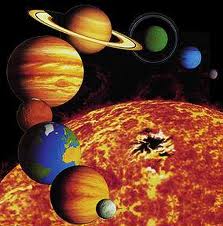
Nature of work
An astronomer studies the fundamental nature of the universe, ranging from the vastness of space to the smallest of subatomic particles. He/she develops new technologies, methods based on the results of his/her research to deepen our understanding of how things work and contribute to innovative, real-world applications. He/she develops scientific theories and models to explain the properties of the natural world, such as atom formation. He/she writes proposals and applies for research grants, does complex mathematical calculations to analyze physical and astronomical data, such as finding new planets in distant solar systems. He/she designs scientific equipment develops computer software to analyze and model data. He/she works on scientific papers that may be published in scholarly journals; and presents research findings at scientific conferences and lectures. He/she studies the motions, compositions, origins, and other properties of planets, stars, galaxies and other celestial bodies. He/she uses ground-based equipment, such as radio and optical telescopes, and space-based equipment, the Hubble Space Telescope to make observations and collect data. Some astronomers focus their research on objects in our own solar system. Environment of work
Most astronomers work in offices, but they also may spend many hours working in observatories. During observatories, he/she uses ground-based telescopes to gather data and make observations. Increasingly, observations are done remotely via the internet without the need for traveling to an observatory. He/she temporarily works away from home at national or international facilities that have unique equipment, such as particle accelerators and gamma ray telescopes. He/she also frequently attends meetings to present research results, discuss ideas with colleagues, and learn more about new developments in their field. Most of them work full time. He/she may need to work at odd hours, especially at night, to observe celestial events, such as eclipses. Professional life
Competition for permanent research appointments, such as those at colleges and universities, is expected to be strong. Increasingly, the one who has a Ph.D. needs to work through multiple postdoctoral positions before finding a permanent position. In addition, the number of research proposals submitted for funding has been growing faster than the amount of funds available, causing more competition for grants. Despite competition for traditional research jobs, prospects should be good for physicists in applied research, development, and related technical fields. A graduate with any academic degree in physics or astronomy, from bachelor’s degree to doctorate, will find his/her knowledge of science and mathematics useful for entry into many other occupations. Range of typical starting salaries: 40000 SYP. Getting the job
An astronomer needs a Ph.D. for most jobs. After receiving a Ph.D. in physics or astronomy, many begin their careers in a temporary postdoctoral research position, which typically lasts 2 to 3 years. A graduate student usually concentrates on a subfield of physics or astronomy, such as condensed matter physics or optics. In addition to take courses in astronomy, a Ph.D. student needs to take courses in mathematics, such as calculus, linear algebra, and statistics. Computer science classes are also essential because astronomers often develop specialized computer programs that are used to gather, analyze, and model data. A bachelor’s degree in physics is often considered the best preparation for Ph.D. programs in astronomy. Those with only a bachelor’s degree in physics or astronomy typically are not qualified to fill research positions. However, he/she may be qualified to work as technicians and research assistants in related fields, such as engineering and computer science. Skills
There are some skills the astronomer needs to have and improve, such as:Advanced mathematical skills, he/she performs complex calculations involving calculus, geometry, algebra, and other areas of mathematics.
Analytical skills, he/she must be precise and accurate in his/her analysis because errors could invalidate his/her research.
Critical-thinking skills, he/she must determine whether results and conclusions are based on sound science.
Interpersonal skills, he/she needs to be able to work well with others towards a common goal.
Problem-solving skills, he/she uses scientific observation and analysis to solve complex scientific questions.
Presentation skills, he/she presents his/her research at scientific conferences, to the public, or to company management and other employees.
Writing skills, he/she writes reports that may be published in scientific journals.
Sources and references
If you need any further information on what is included in this file, you can visit the following websites:www.nasa.gov, National Aeronautics and Space Administration
www.astronomy.com, A website is for anyone who wants to learn more about astronomy events
www.theastronomer.org, The Astronomer Magazine
Arab Standard Classification of Occupations, 2008, Ed. Arab Labor Organization.
Summary
An astronomer is a scientist who studies celestial bodies such as moons, planets, stars, nebulae, and galaxies, as well as gamma-ray bursts and cosmic microwave background radiation. A related but distinct subject, cosmology, is concerned with studying the universe as a whole.Astronomy is more concerned with the classification and description of phenomena in the sky, while astrophysics attempts to explain these phenomena and the differences between them using physical laws.
